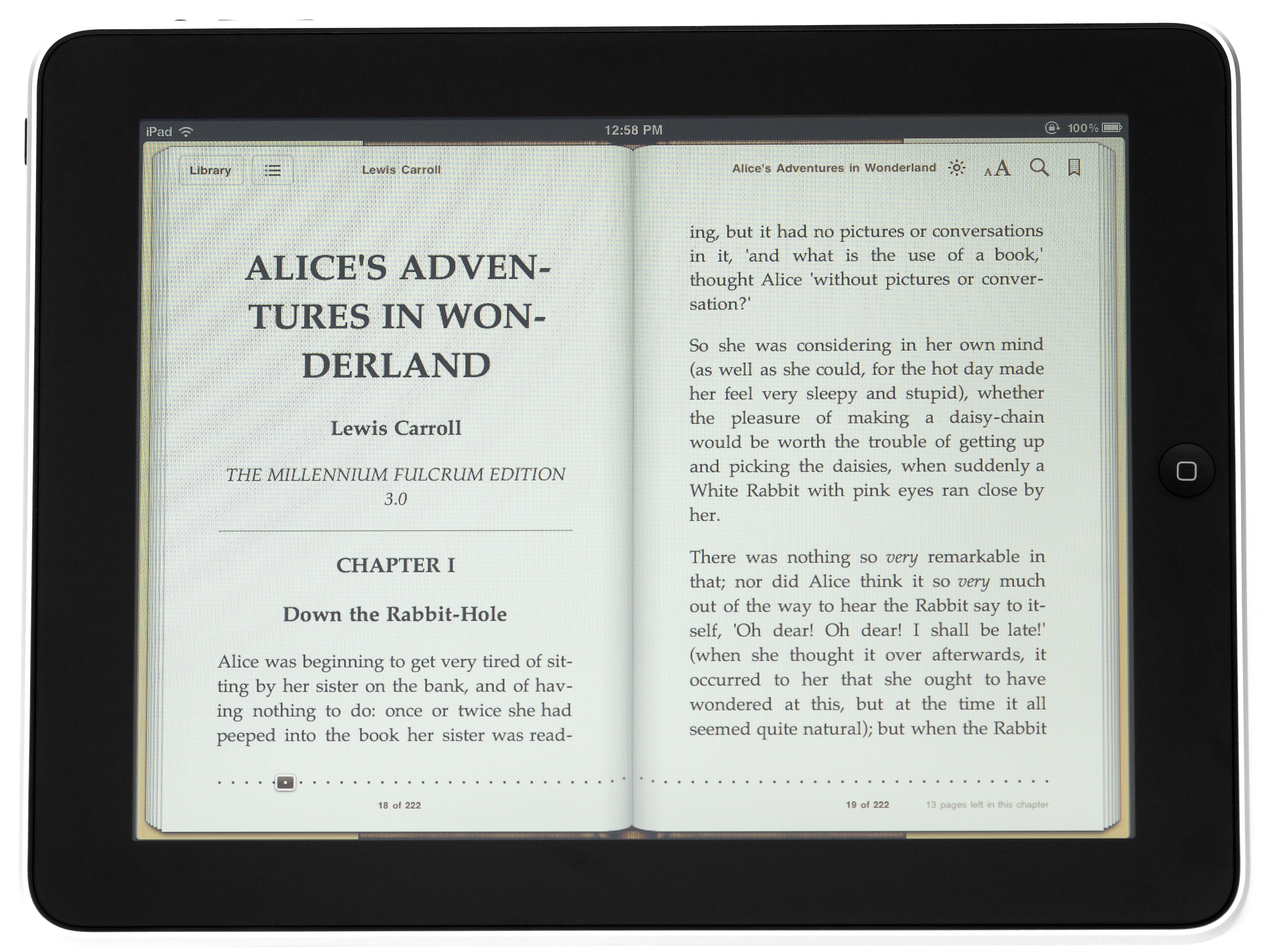
For those who appreciate the simple charms of literature in a world of technologic chaos, books provide a safe haven and an opportunity to envelop themselves in ink’s imagination. Our children may never appreciate these facets of literature thanks to electronic readers such as iPads, Kindles and Nooks. In other words, e-book readers are stealing the fundamental joys from literature made in the printed word.
The Association of American Publishers (AAP) reported that the mass market of adult paperback and hardcover books reached $1.23 billion in sales for the first six months of 2011, a 25.9 percent decrease from 2010.
In comparison, the e-books have reached an astonishing $473.8 million in sales during that same time period, a 161.3 percent increase from 2010. Sales of paperbacks and hardcovers are only decreasing, while those of e-books are rising every month.
It’s not hard to see why there are advantages to e-books. E-books are appealing in so many different aspects. They are the beautiful counterparts to our already techno-friendly generation.
Aesthetically, e-book readers such as the Nook, Amazon Kindle and some cell phones have featherweight, sleek features with effort-minimizing touch screens to match. Internally, an e-book reader can hold up to thousands of books that contain audio, pictures, highlighting options and even annotatable margins.
Not only are e-book readers an investment for the amount of money we spend on education (ahem, hefty college textbooks) every year, but they promote sustainability in an obvious sense – their lack of paper. Seems perfect, doesn’t it?
Universities around the United States seem to think so.
Apple released a statement on Yahoo! Finance this past month, announcing that at least 600 school districts in the United States are now launching the use of iPads in high school classrooms.
One must wonder, however, about the reliability of encouraging every high school student to use an iPad in class. Can one really guarantee that students won’t hop onto Facebook simultaneously?
Maybe they can limit the in-class iPad abuse by setting up Internet boundaries and disabling games like Angry Birds. However, this is a weak rebuttal. Students have found loopholes in the school system for years and could easily make an app to get around the boundaries.
And is the production of hundreds of iPads per school really promoting sustainability, given the resources used to do so?
A walk to the library is still the most eco-friendly way to go when one accounts for iPad production.
Aside from these minor objections, I agree that e-book readers will eventually be of prevalent use in science, math, history, and classes of the like. And they should. They will save money, paper, space and time.
But let’s be clear about something. E-books do not belong in the world of prose and poetry. In fact, the idea is disgraceful.
True book lovers don’t just read a book. We hold a book. We will remember the way it felt. We will remember the way the aged pages smelt when mixed with a spilt cup of coffee. These books are the ones that dance in our hands. These books stand proudly on our shelves with tattered bindings and artistic covers.
We have books that our parents and their parents have passed down that, upon holding them, place us in their shoes and help us relive their youth.
Aesthetics and sentimentality aside, e-books are distracting. Because they strive to have limitless applications and options, one could easily lessen the mental strain of absorbing a chapter’s dry rhetoric and start another book in a matter of seconds. If one is using an e-book with the Internet, it’s an even worse situation in terms of commitment.
This is in comparison to a printed book that, if one put it down, the abandonment is clear and the guilt even more so.
Additionally, aren’t we all sick and tired of looking at a screen?
The Council for Research Excellence released that an average American spends 8.5 hours a day looking at a screen. It’s not a surprising statistic once you think about it. Computers, phones, televisions, videogames and PowerPoints—all of those things are prevalent in our lives 24/7.
Sure, go ahead and use those e-books in the kljhclassroom. Appreciate the new features that can deepen our understanding about subjects we love most while helping us poor college students save hundreds on textbooks. I’m fine with it.
But leave literature out of the screen, for goodness sake.
